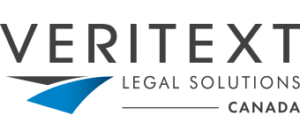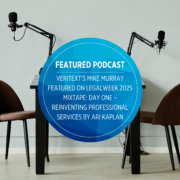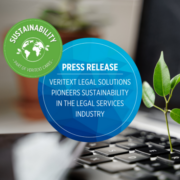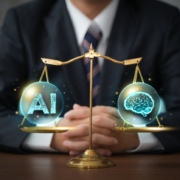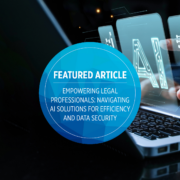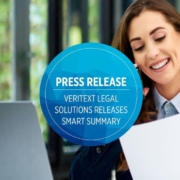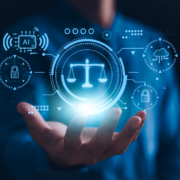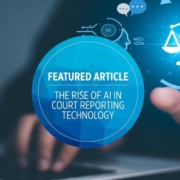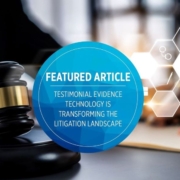In recent years, the legal industry has seen a significant shift towards digitization and the adoption of paperless practices. Covid protocols and the rising trend of hybrid and remote work have certainly sped up that trend.
Advancements made in the fast digital distribution of files — through encrypted hyperlinks — have become the more superior, more sustainable, and more secure solutions for transcript and exhibit delivery. With paperless legal services, law firms and courts can significantly reduce their paper consumption and the associated costs, such as printing, storage, and secure disposal.
It will come as no surprise that the legal industry is a significant consumer of paper. From bankers’ boxes full of files to legal binders and correspondence… the list goes on. By adopting paperless practices and utilizing digital technologies, legal services can reduce their environmental impact and improve the efficiency and accessibility of the legal industry. The benefits of going paperless in the legal sector are many. First and foremost, it is a more sustainable and eco-friendly approach. According to the American Bar Association, an average case with a duration of a year can generate between 20,000 to 100,000 sheets of paper including motions, discoveries, transcripts, exhibits, and other legal documents. The statistics in Canada will no doubt be similar. That’s a lot of trees.
Another advantage of going paperless is improving access to justice. Today we can ensure that legal documents and information are easily accessible to authorized parties while maintaining a high level of security and confidentiality. In 2019, the Ministry of the Attorney General of BC published a ‘roadmap’ to their digital transformation. You can read the report here. The comprehensive report looks at the inevitable transformation of the legal industry into a digital model and how that impacts our legal system. BC and Court systems across Canada – including the Supreme Court – and the United States have developed comprehensive electronic filing systems that allow users to upload multiple documents per case to be used for all filings (with some exceptions).
Veritext has a long-standing commitment to sustainability. Our technological orientation is central to mitigating our environmental impact and we invite you to read more about our sustainability practices and strategies to lessen our own environmental impact in this comprehensive report.
Our commitment to building a more sustainable industry is why our standard transcript deliverables are via secure and encrypted electronic hyperlinks — however, we understand the needs of our clients — and hard copies of all your proceedings will continue to be available upon request. We are dedicated to customizing your experience with our client services, providing cutting-edge solutions, and capturing your desired preferences to deliver the best service tailored to your needs.
